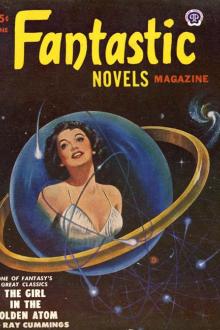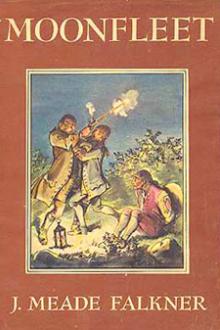Genre Fiction. Page - 224

in the morning we go to the pump-room (though neither my master nor I drink the waters); after breakfast we saunter on the parades, or play a game at billiards; at night we dance; but damn the place, I'm tired of it: their regular hours stupify me--not a fiddle nor a card after eleven!--However, Mr. Faulkland's gentleman and I keep it up a little in private parties;--I'll introduce you there, Thomas--you'll like him much.
THOMAS Sure I know Mr. Du-Peigne--you know his master is to marry Madam Julia.
FAG I had forgot.--But, Thomas, you must polish a little--indeed you must.--Here now--this wig!--What the devil do you do with a wig, Thomas?--None of the London whips of any degree of ton wear wigs now.
THOMAS More's the pity! more's the pity! I say.--Odd's life! when I heard how the lawyers and doctors had took to their own hair, I thought how 'twould go next:--odd rabbit it! when the fashion had got foot on the bar, I guessed 'twould mount to the box!--but 'tis all out of character

theories. What I saw through that ultramicroscope was not an unproven theory, but a fact. My theories you have brought out by your questions."
"You are quite right," said the Doctor; "but you did mention yourself that you hoped to provide proof."
The Chemist hesitated a moment, then made his decision. "I will tell you the rest," he said.
"After the destruction of the microscope, I was quite at a loss how to proceed. I thought about the problem for many weeks. Finally I decided to work along another altogether different line--a theory about which I am surprised you have not already questioned me."
He paused, but no one spoke.
"I am hardly ready with proof to-night," he resumed after a moment. "Will you all take dinner with me here at the club one week from to-night?" He read affirmation in the glance of each.
"Good. That's settled," he said, rising. "At seven, then."
"But what was the theory you expected us to question you about?" asked the Very Young Man.

themselves. As Trevelyan thought of this, and remembered what his manner had been, how much anger he had expressed, how far he had been from having his arm round his wife's waist as he spoke to her, he almost made up his mind to go upstairs and to apologise. But he was one to whose nature the giving of any apology was repulsive. He could not bear to have to own himself to have been wrong. And then his wife had been most provoking in her manner to him. When he had endeavoured to make her understand his wishes by certain disparaging hints which he had thrown out as to Colonel Osborne, saying that he was a dangerous man, one who did not show his true character, a snake in the grass, a man without settled principles, and such like, his wife had taken up the cudgels for her friend, and had openly declared that she did not believe a word of the things that were alleged against him. 'But still for all that it is true,' the husband had said. 'I have no doubt that you think so,' the wife had replied. 'Men do believe e

Tower, Morgan discovered that he had saved as much money for his old age as a sensible man could want; that he was tired of the active pursuit--or, as he termed it, of the dignified quackery of his profession; and that it was only common charity to give his invalid brother a companion who could physic him for nothing, and so prevent him from getting rid of his money in the worst of all possible ways, by wasting it on doctors' bills. In a week after Morgan had arrived at these conclusions, he was settled at The Glen Tower; and from that time, opposite as their characters were, my two elder brothers lived together in their lonely retreat, thoroughly understanding, and, in their very different ways, heartily loving one another.
Many years passed before I, the youngest of the three--christened by the unmelodious name of Griffith--found my way, in my turn, to the dreary old house, and the sheltering quiet of the Welsh hills. My career in life had led me away from my brothers; and even now, when we are all u

d a little round long-necked bottle, from which he poured out a glass for Ratsey and himself. Then he half-filled the third, and pushed it along the table to me, saying, 'There, take it, lad, if thou wilt; 'twill do thee no good, but may do thee no harm.'
Ratsey raised his glass almost before it was filled. He sniffed the liquor and smacked his lips. 'O rare milk of Ararat!' he said, 'it is sweet and strong, and sets the heart at ease. And now get the backgammon-board, John, and set it for us on the table.' So they fell to the game, and I took a sly sip at the liquor, but nearly choked myself, not being used to strong waters, and finding it heady and burning in the throat. Neither man spoke, and there was no sound except the constant rattle of the dice, and the rubbing of the pieces being moved across the board. Now and then one of the players stopped to light his pipe, and at the end of a game they scored their totals on the table with a bit of chalk. So I watched them for an hour, knowing the game my

ght. I'll say this much, though," she relented, "it will be the biggest challenge that Tom Swift Jr. and Sr. have ever faced!"
"Whew!" Bud remarked as the two boys glanced at each other. "That must mean it's plenty big news! It would have to be, skipper, to top all the other jobs you and your dad have taken on!"
Conquering outer space, probing the ocean's secrets, drilling to the earth's core--these were only a few of Tom Swift's many exciting exploits.
In his first adventure, Tom, in his Flying Lab, had gone to South America to fend off a gang of rebels seeking a valuable radioactive ore deposit. In his most recent challenge, Tom had defied the threats of Oriental killers determined to ferret out the secret of the Swifts' latest space research.
As the two boys silently recalled the exciting events of the past months, Mr. Swift returned to the living room.
Tom and Bud leaned forward in their chairs. "Well, boys," Mr. Swift said, "as I started to tell you, the space

escription, but that was to be looked for and discounted. And she had remembered, at the end, to include her ostensible reason for telling the story.
"Yes, it must have been dreadful," he sympathized. "Odd, though, that an old hand with guns like Mr. Fleming would have an accident like that. I met him, once or twice, and was at your home to see his collection, a couple of years ago. He impressed me as knowing firearms pretty thoroughly.... Well, you can look for me tomorrow, say around two. In the meantime, I'll see Goode, and also Gresham and Arnold Rivers."
CHAPTER 2
After ushering his client out the hall door and closing it behind her, Rand turned and said:
"All right, Kathie, or Dave; whoever's out there. Come on in."
Then he went to his desk and reached under it, snapping off a switch. As he straightened, the door from the reception-office opened and his secretary, Kathie O'Grady, entered, loading a cigarette in

never eat more than anomelette and some fruit for luncheon, compelled to sit down every day toa mittagessen! I wonder I have any digestion left at all."
"Do you mean that you were there under your own name?" he askedincredulously.
She shook her head.
"I secured some perfectly good testimonials before I left," she said."They referred to a Miss Brown, the daughter of Prebendary Brown. I wasMiss Brown."
"Great Heavens!" Nigel muttered under his breath. "You heard aboutAtcheson?"
She nodded.
"Poor fellow, they got him all right. You talk about thrills, Nigel,"she went on. "Do you know that the last night before I left for myvacation, I actually heard that fat old Essendorf chuckling with hiswife about how his clever police had laid an English spy by the heels,and telling her, also, of the papers which they had discovered andhanded over. All the time the real dispatch, written by Atcheson whenhe was dying, was sewn into my corsets. How's that for an excitingsituation?"

said--" only every winter it was a different "he."
In my wash-stand drawer I'd kept all the clippings about her coming out and the winter she spent in Washington and was supposed to be engaged to the president's son, and the magazine article that told how Mr. Jennings had got his money by robbing widows and orphans, and showed the little frame house where Miss Patty was born--as if she's had anything to do with it. And so now I was cutting out the picture of her and the prince and the article underneath which told how many castles she'd have, and I don't mind saying I was sniffling a little bit, for I couldn't get used to the idea. And suddenly the door closed softly and there was a rustle behind me. When I turned it was Miss Patty herself. She saw the clipping immediately, and stopped just inside the door.
"YOU, TOO," she said. "And we've come all this distance to get away from just that."
"Well, I shan't talk about it," I replied, not holding out my hand, for with her, so to speak, next

he time, my brothers Hosea andEphraim were respectively nine and seven, while little Ruth could scarcehave been more than four. It chanced that a few days before a wanderingpreacher of the Independents had put up at our house, and his religiousministrations had left my father moody and excitable. One night I hadgone to bed as usual, and was sound asleep with my two brothers besideme, when we were roused and ordered to come downstairs. Huddling on ourclothes we followed him into the kitchen, where my mother was sittingpale and scared with Ruth upon her knee.
'Gather round me, my children,' he said, in a deep reverent voice, 'thatwe may all appear before the throne together. The kingdom of the Lordis at hand-oh, be ye ready to receive Him! This very night, my lovedones, ye shall see Him in His splendour, with the angels and thearchangels in their might and their glory. At the third hour shall Hecome-that very third hour which is now drawing upon us.'
'Dear Joe,' said my mother, in soot